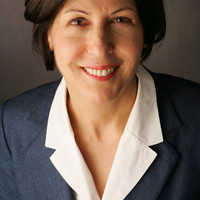Thanksgiving is the most American of holidays. But there is something almost un-American about it. It is a day opposed to striving, to getting more. We stop adding up the numbers in our accounts. We freeze in place to give thanks for whatever is there.
Today's big issue is "affordability." But the complaint is rising prices for food, not the inability to buy it.
One of the more irritating resentments centers on the notion that many of us will not be living "as well" as our parents did. By living well, they are talking about money, not the availability of treatments for diseases that our ancestors couldn't buy at any price.
Some years back, an investment company ran an ad showing a young woman sitting pensively on a front porch. "Your grandfather did better than his father," it read. "Your father did better than his father. Are you prepared to carry on the tradition?"
Note the use of the respectable word "tradition" on what's really a call for intergenerational competition. It also suggests that failure to amass more wealth than one's parents is a threat to the family's honor.
And so what if the young next generation isn't as rich as the previous one? The way most of us live would be the envy of 98% of the earth's inhabitants.
Our culture does not encourage contentment. This is the land of the upgrade. One can always do better, be it with house or spouse. When money is the measurement, the competitive struggle can never end without acknowledging some kind of defeat. Everyone other than Elon Musk has someone who is ahead.
Messages in the media continually tweak Americans' innate sense of inadequacy. Our folk hero is the college dropout who sells his tech company for $2 billion by the age of 26. How is a middle-aged guy making $85,000 a year supposed to feel about that?
Such thinking would have been wholly foreign to the Pilgrims celebrating the "first Thanksgiving." The Pilgrims traded the comforts of England to worship as they chose. Their ship, the Mayflower, landed at what is now Plymouth, Massachusetts, on Dec. 16, 1620. They held the first Thanksgiving the following autumn.
Mid-December is an awful time to set up shop in the New England wilderness. Disease immediately carried off more than half of the 102 new arrivals. They are buried across the street from Plymouth Rock. Without the help of the Wampanoag Indians, the colony would have vanished altogether.
Things got better by 1625, prompting the colony's governor, William Bradford, to write that the Pilgrims "never felt the sweetness of the country till this year." But that hadn't stopped them from giving thanks four years earlier. The purpose was not to celebrate "the good life" but to bow in gratitude for their survival. The Wampanoags stayed for three days and provided most of the food.
By the 1830s, America was already a bustling land of fortune-building and material lust. Intellectuals of the day looked back nostalgically at their concern with unworldly matters.
Henry Thoreau admired the Pilgrims' willingness to suffer for principle: "They were ready to risk all for the freedom to obey their own convictions."
Ralph Waldo Emerson spoke of the Pilgrims' religious orientation as "an antidote to the spirit of commerce and of economy." Now note how Black Friday has eclipsed much of the anticipation of Thanksgiving dinner.
Thanksgiving is a throwback to that past. It requires a Zen-like acceptance of the present and what it is. Gratitude is the order of the day.
This is a full-glass holiday. To be healthy, educated and living in America is to have one's cup running over. For that, let us give thanks.
Follow Froma Harrop on X @FromaHarrop. She can be reached at [email protected]. To find out more about Froma Harrop and read features by other Creators writers and cartoonists, visit the Creators webpage at www.creators.com.
Photo credit: Megan Nixon at Unsplash






View Comments